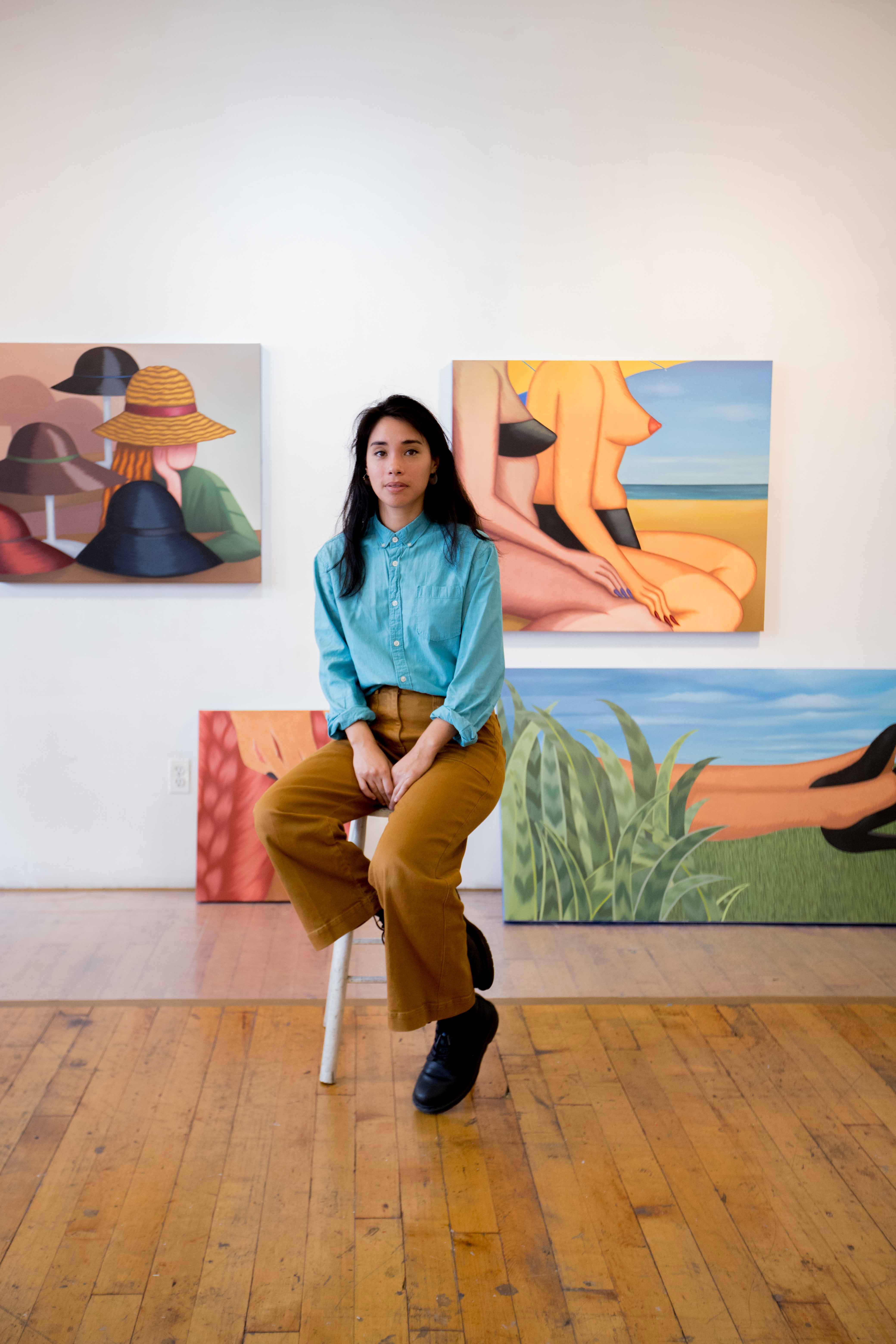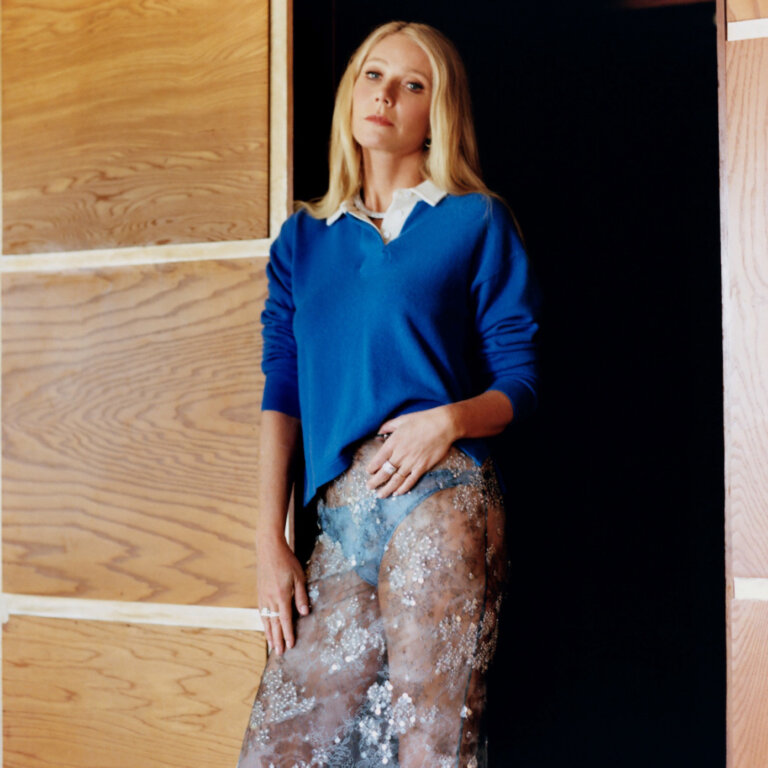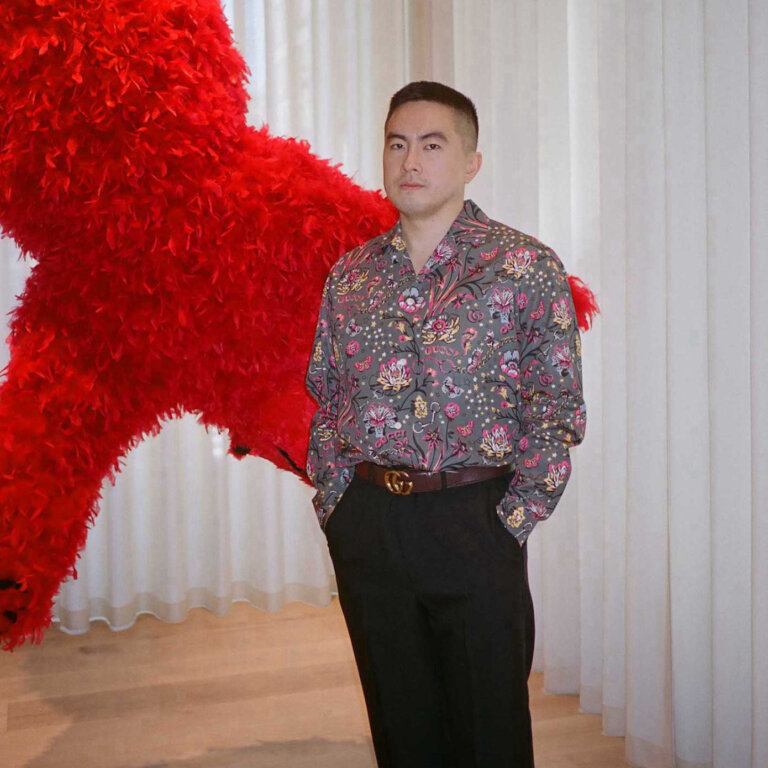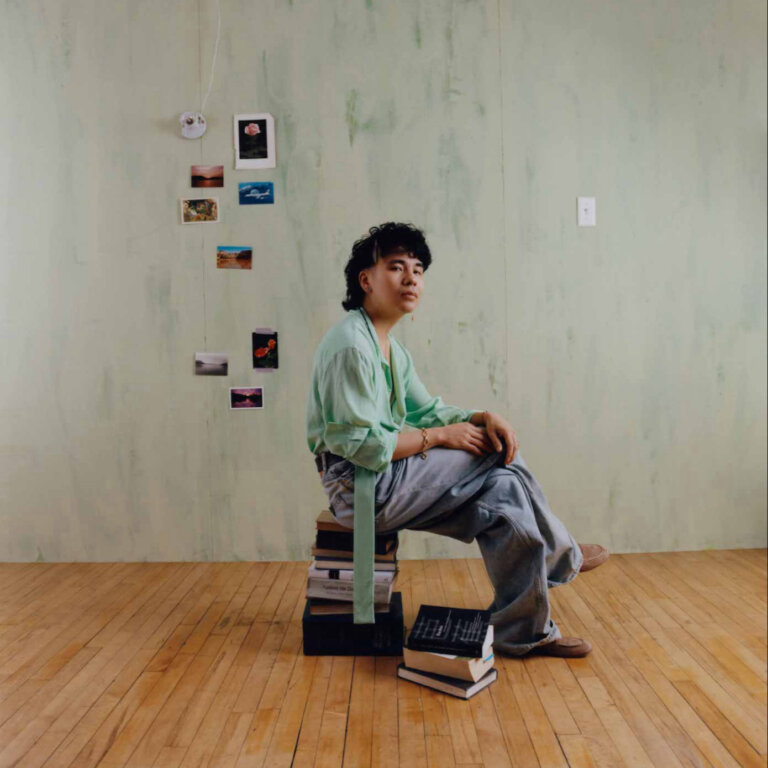
Hair is a physiological phenomenon of the body, but also a cultural one. Throughout centuries, there have been rituals associated with treating and styling one’s hair and that of others. The symbolism associated with female hair abounds; it carries sensual and sexual connotations, superpowers and health. Whether it is braided, loose, long, straight or wavy, men and women have fetichized the power of hair throughout history. From the biblical story of Samson and Delilah, to Botticelli’s 1486 The Birth of Venus, to the Grimm Brother’s 1812 Rapunzel, the power of hair seems to hold a magical and undeniable mysticism to it.
For Julie Curtiss, who was born in France and now lives in Brooklyn, exploring hair in her work started at the beginning of her career as an artist. There are the mundane common images of hair and heads, intermingled with surrealistic elements such as clouds or deleting parts of the scene to leave the viewer wondering. There are so many aspects to delve into, including the morbid ones—like hair that still grows once someone has died, the taboos around hair that doesn’t grow in the head and the connection we have to mammals covered in fur. And although hair is present in almost every one of her paintings, gouaches or sculptures, Curtiss also deals with nails, the female figure and her fascination with the spectacle of American women who transform and adorn their faces and bodies through cosmetic treatments, exaggerated makeup and plastic surgery. A surrealist sight, indeed.
Craving more culture? Sign up to receive the Cultured newsletter, a biweekly guide to what’s new and what’s next in art, architecture, design and more.










 in your life?
in your life?

